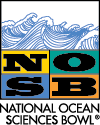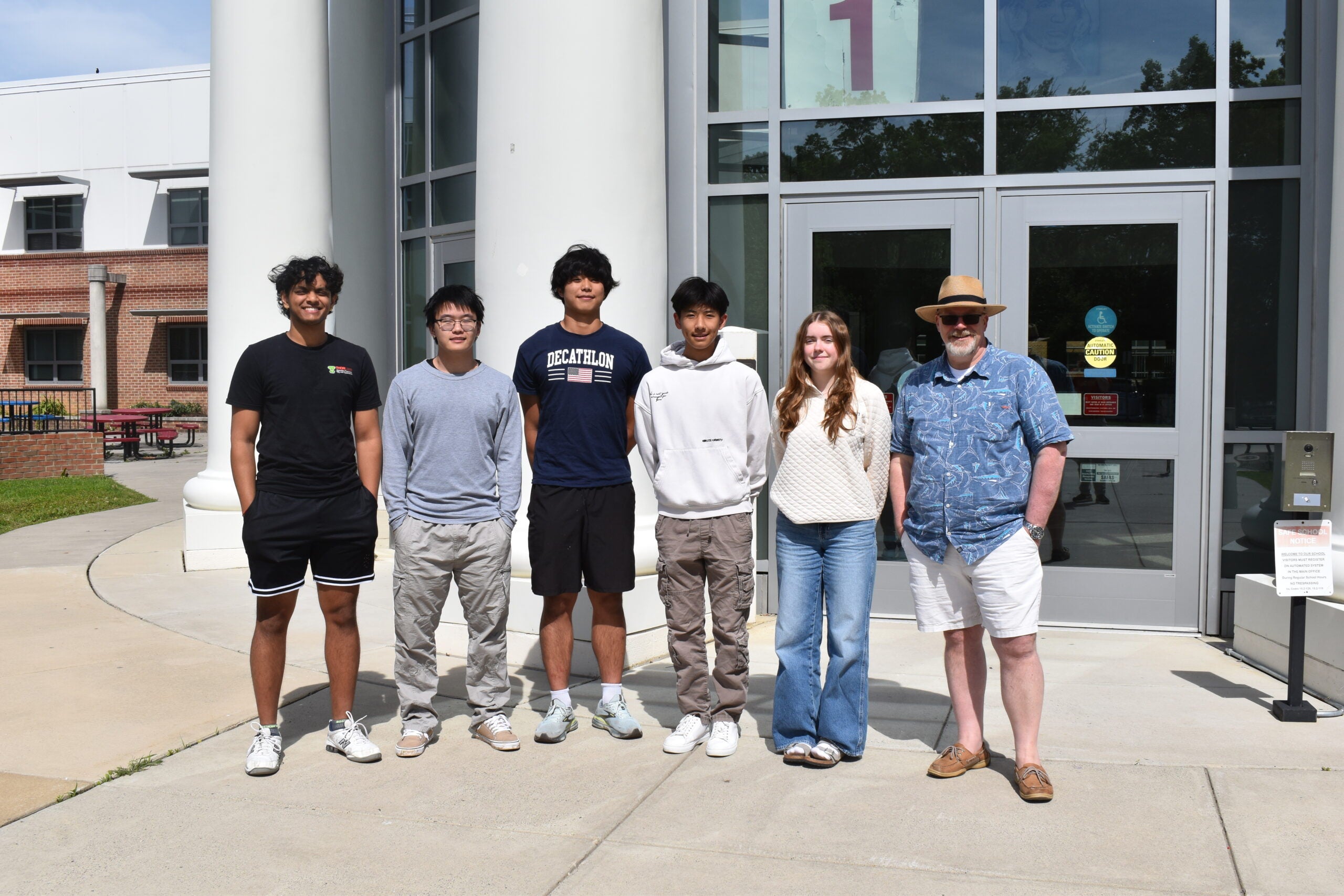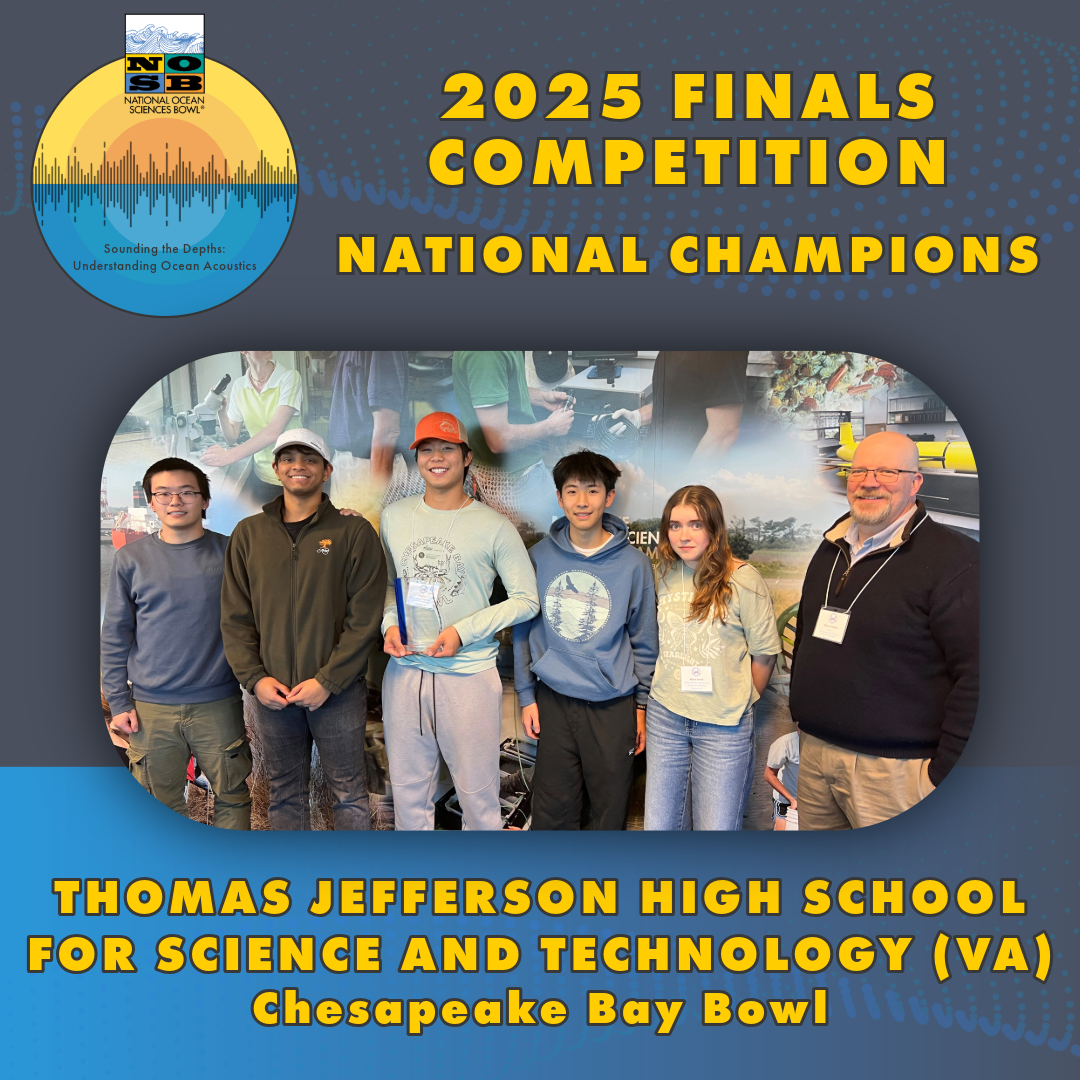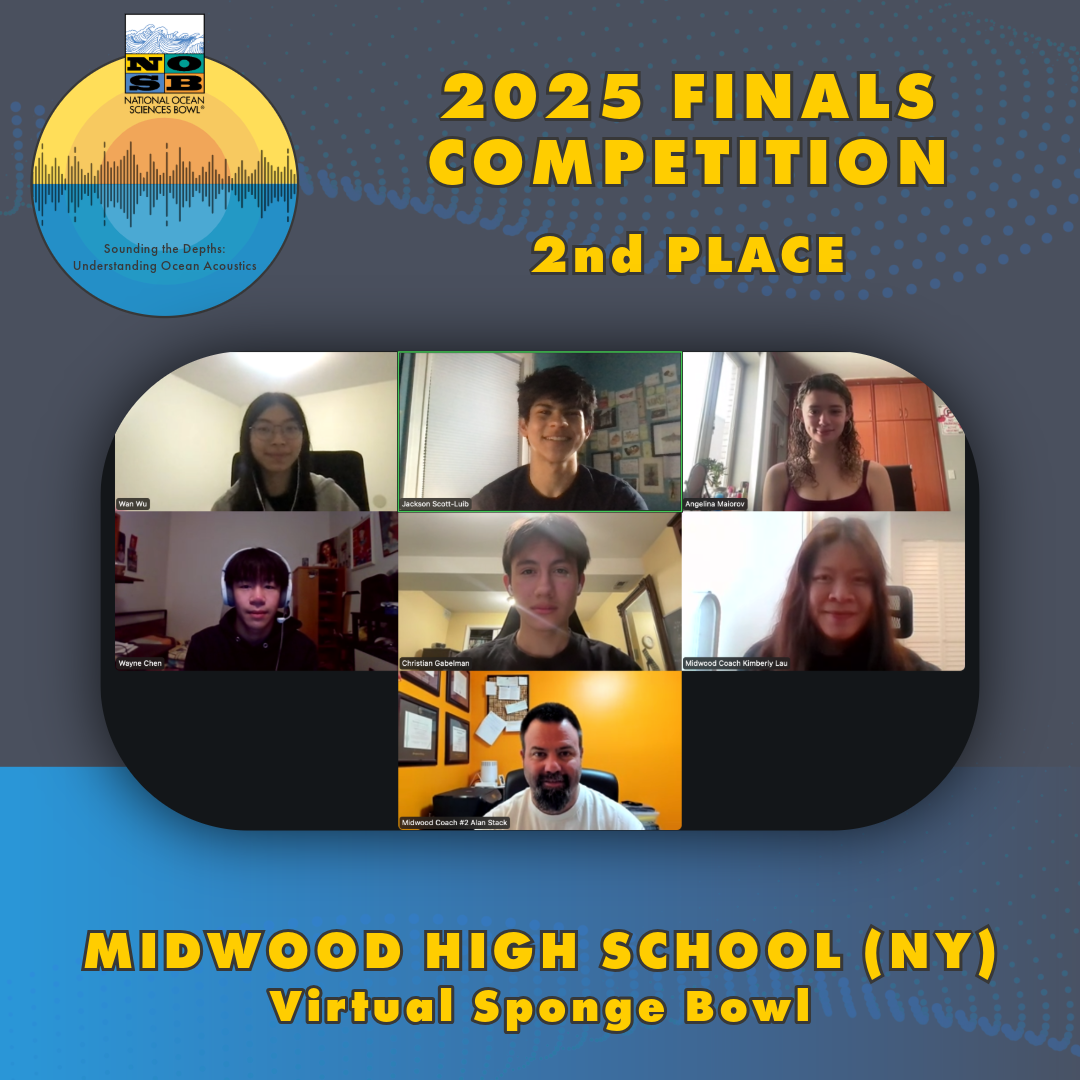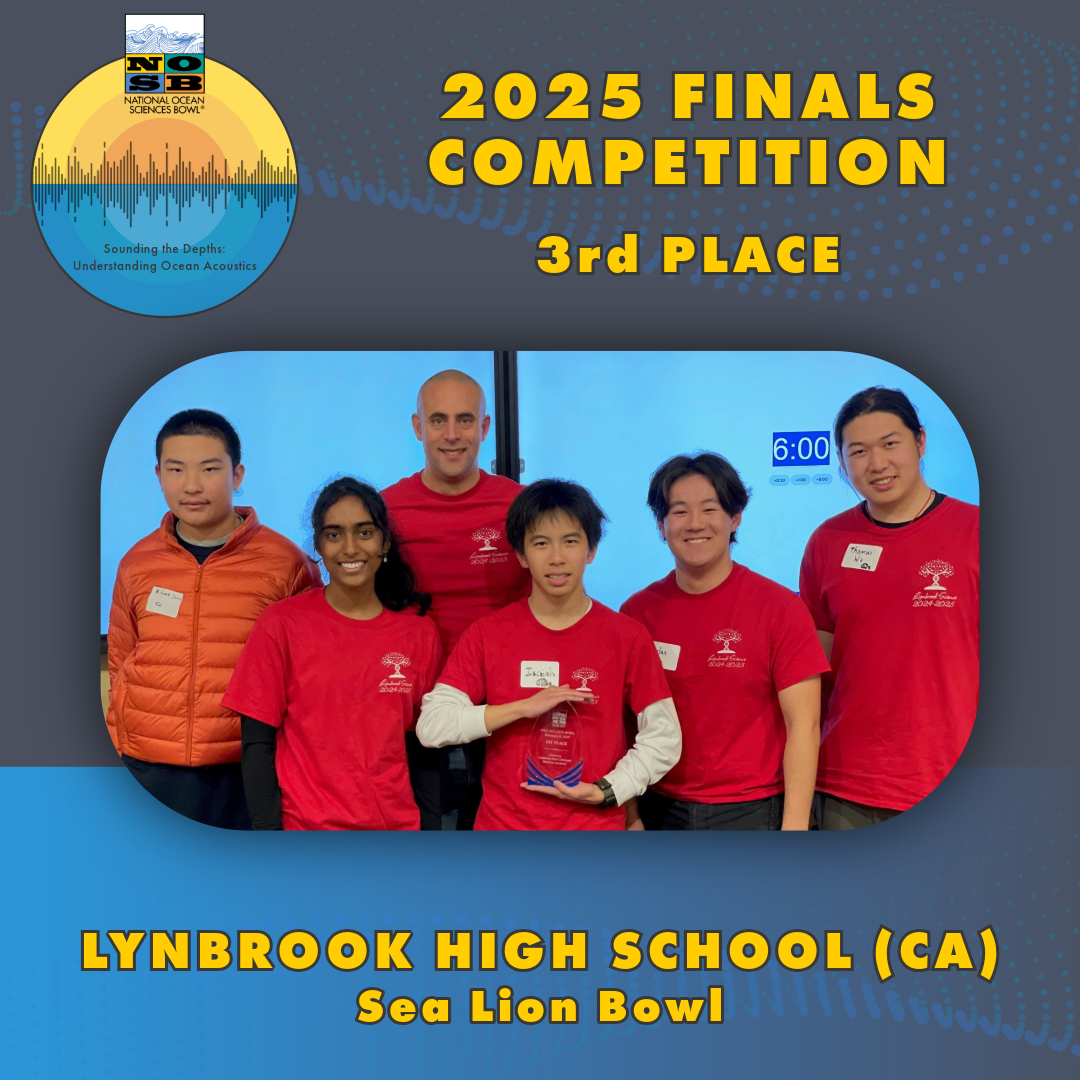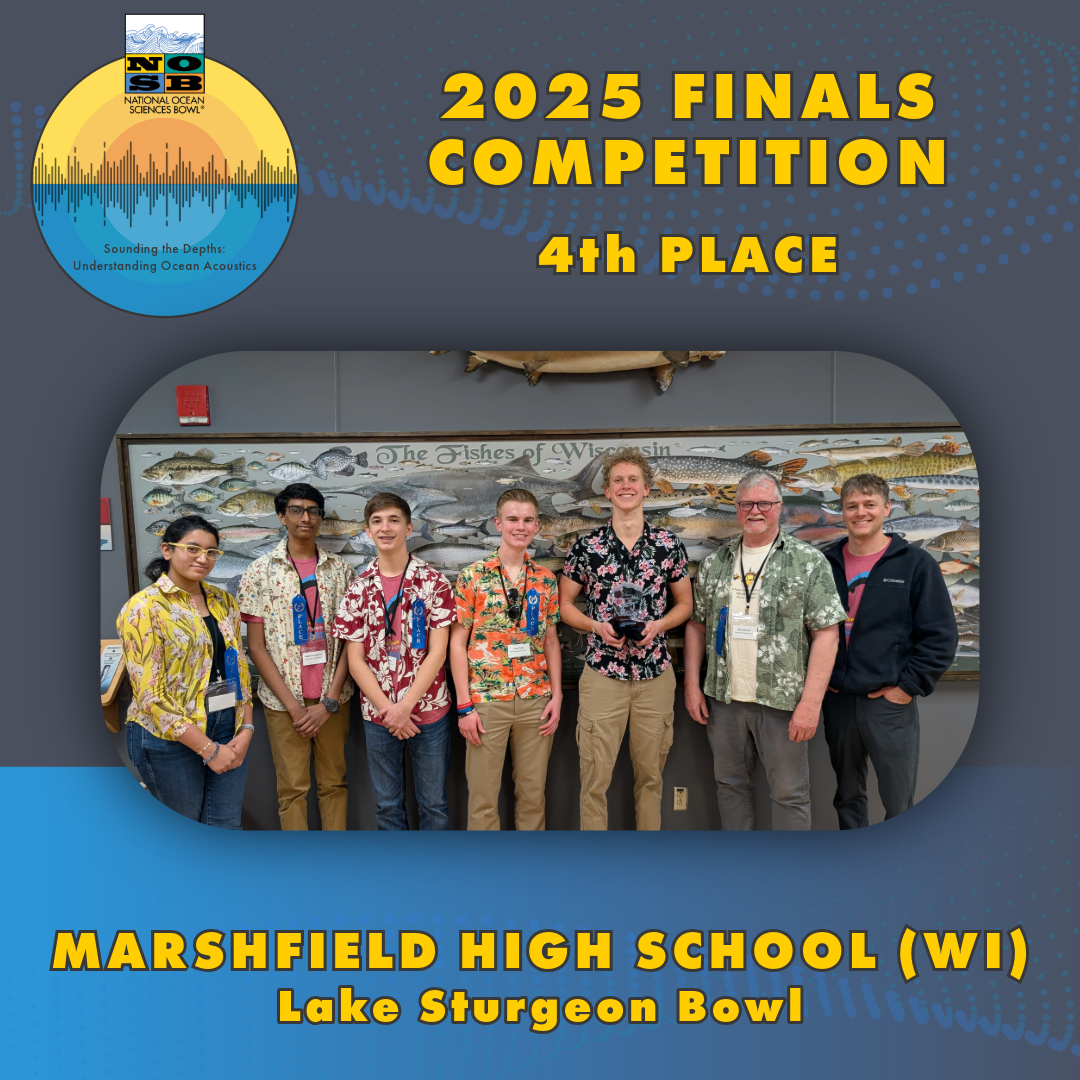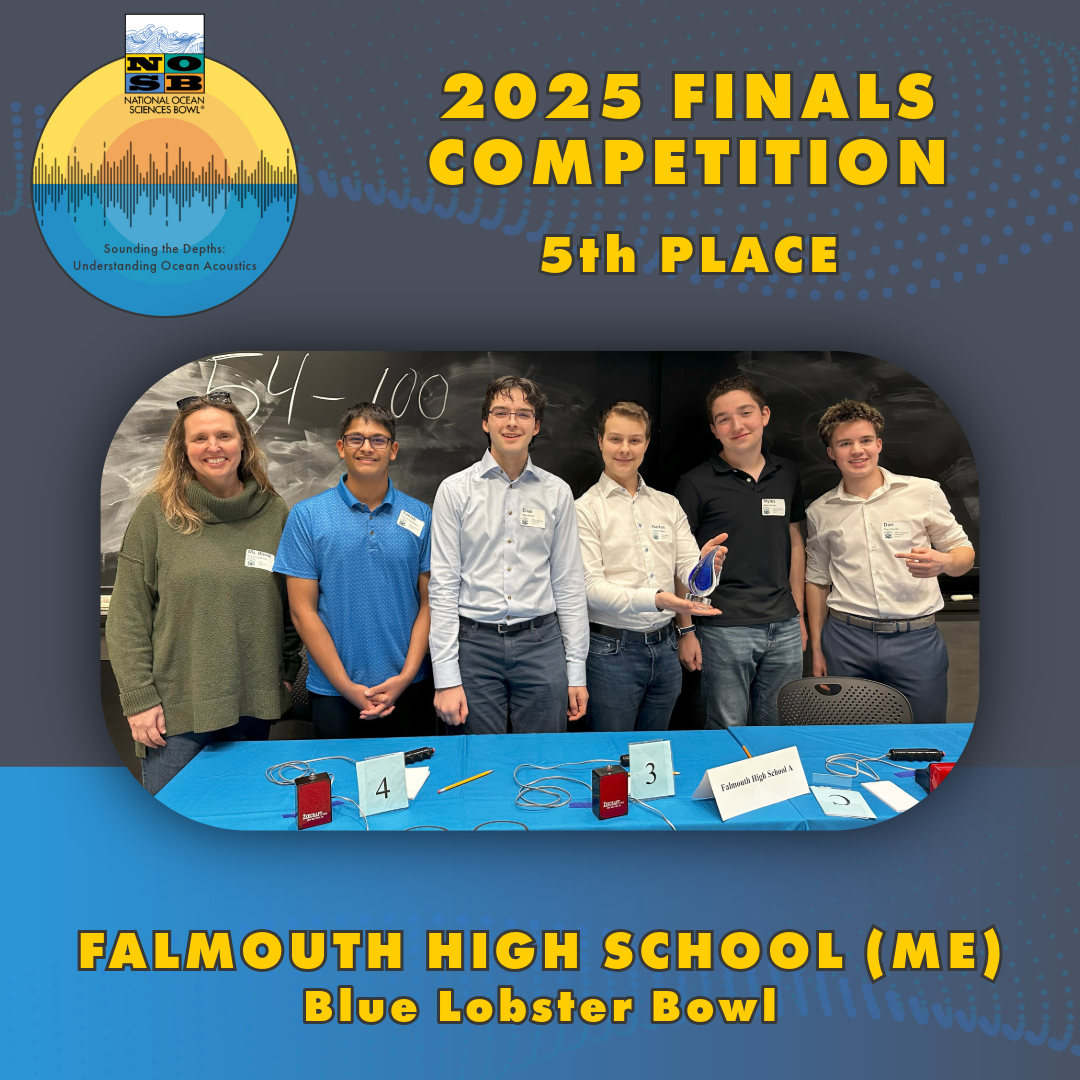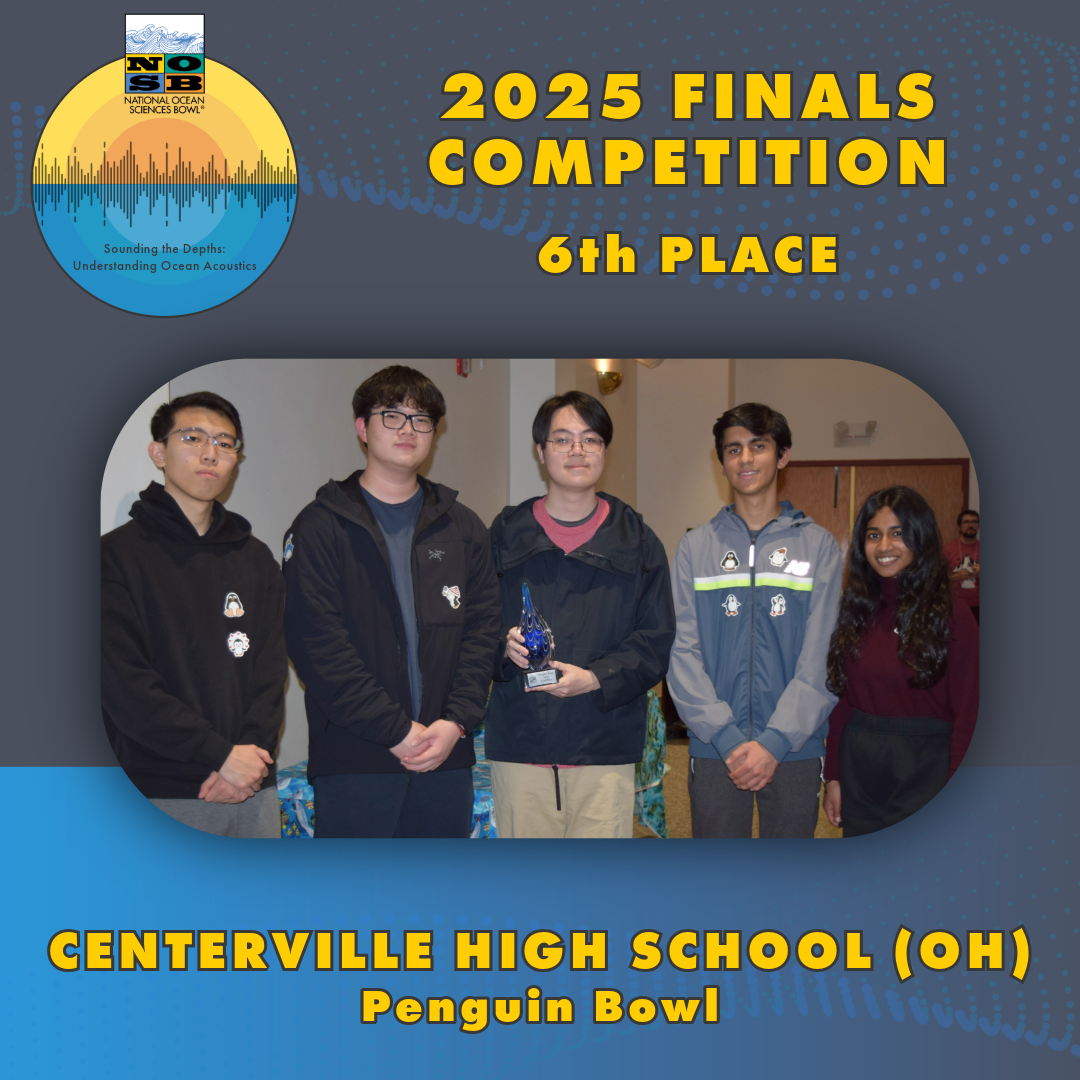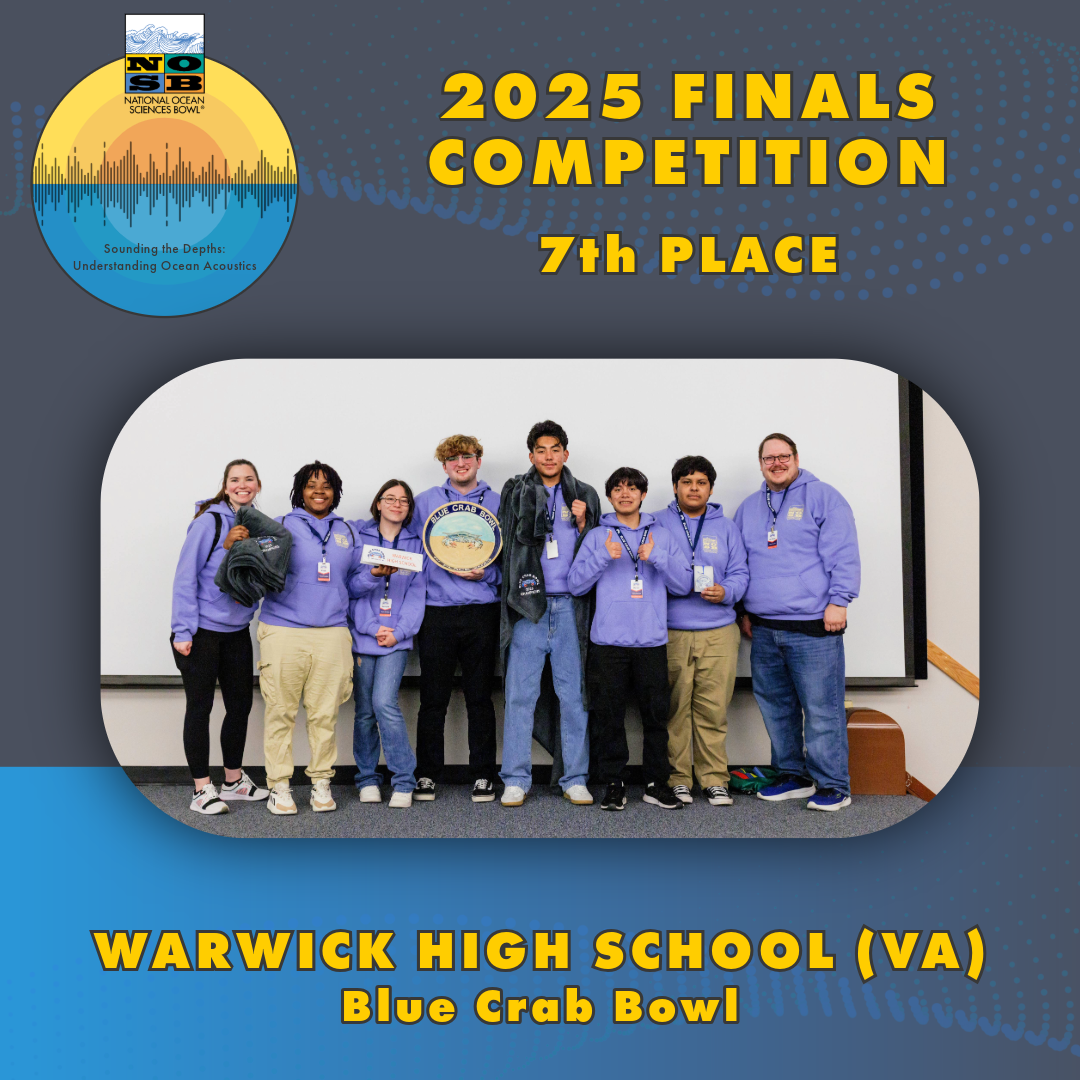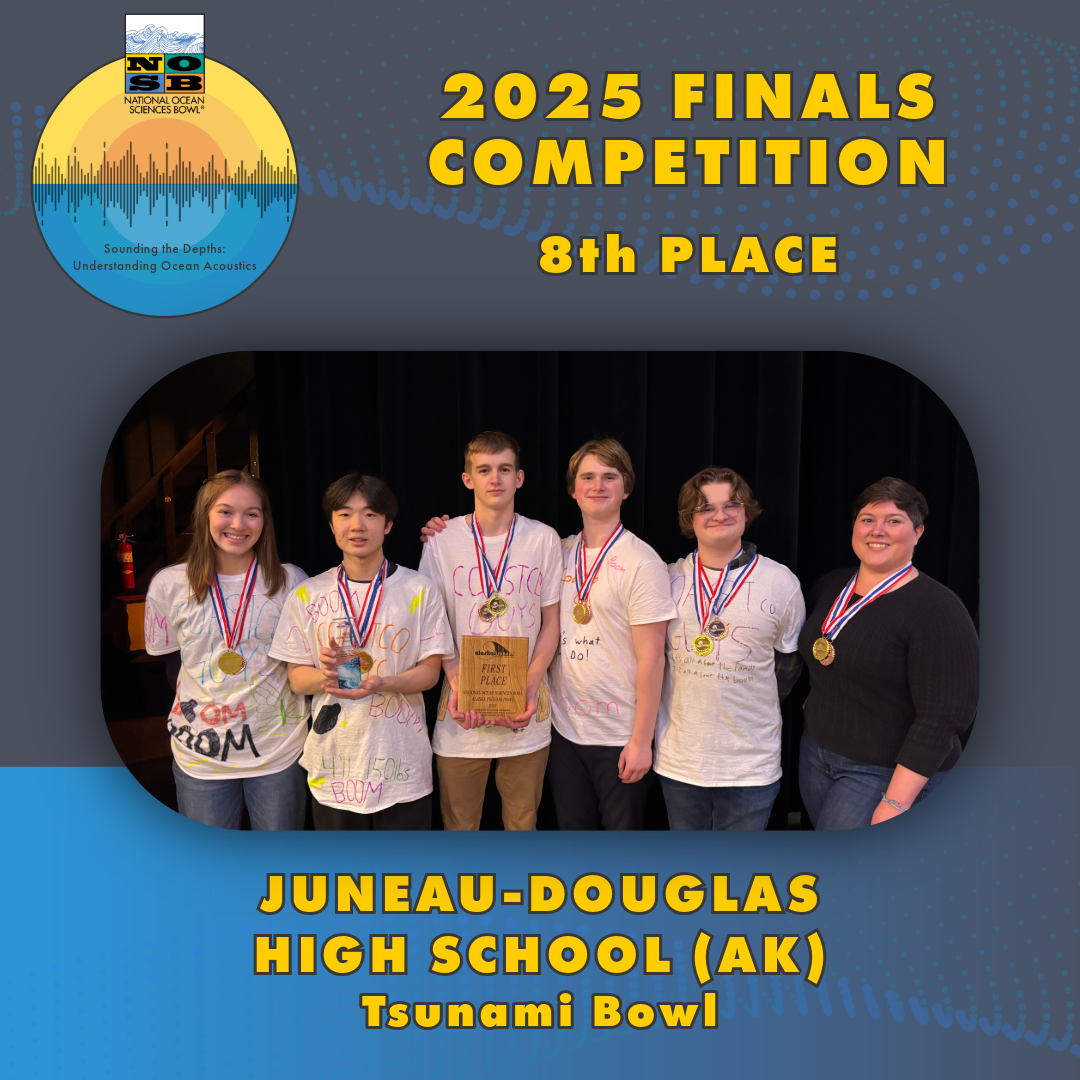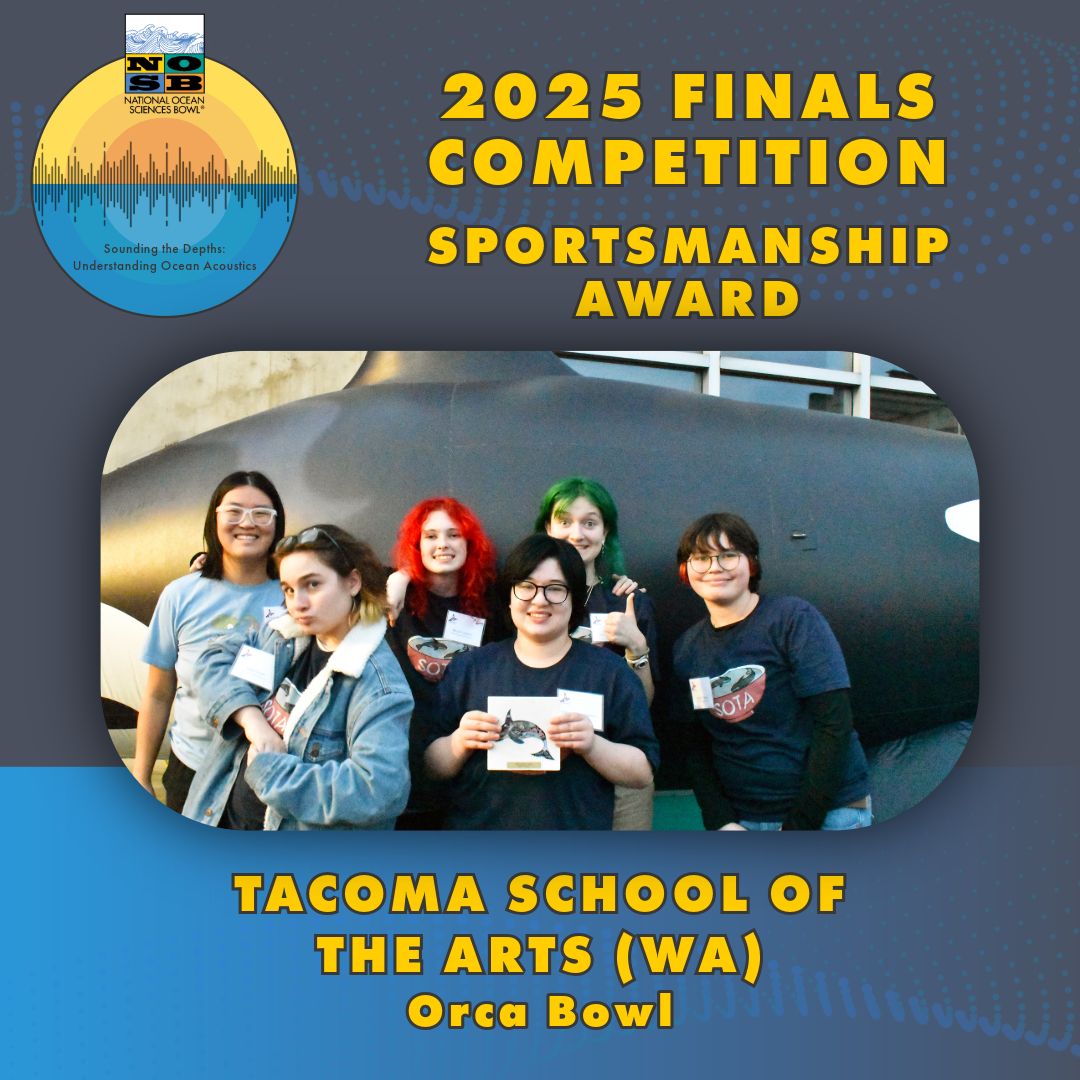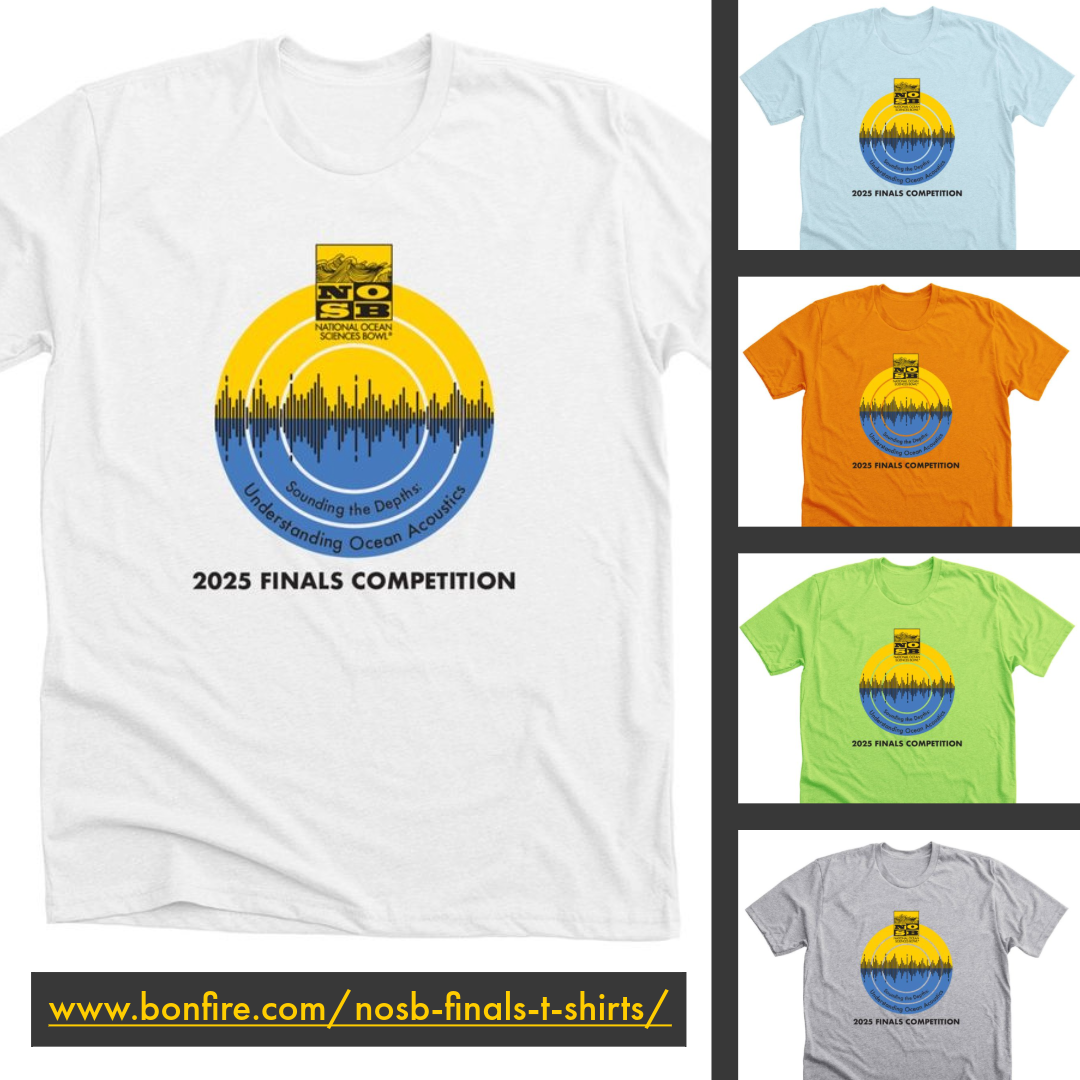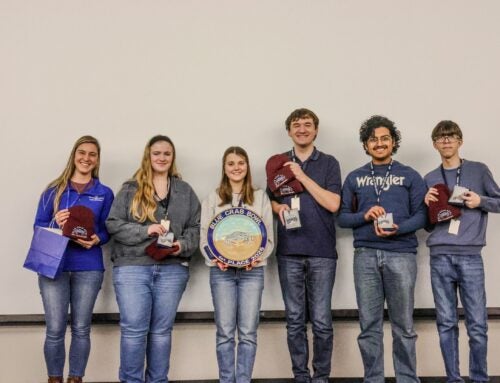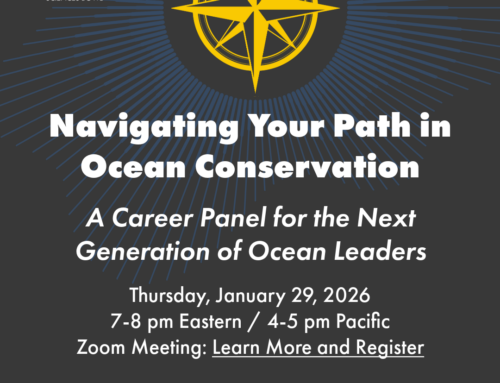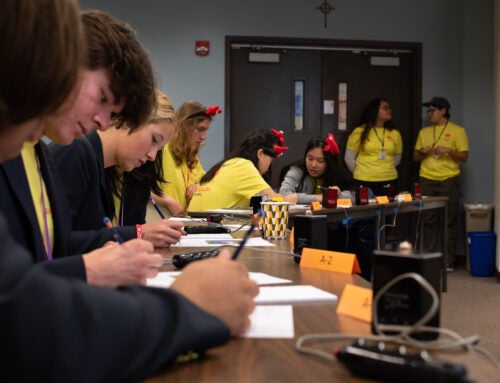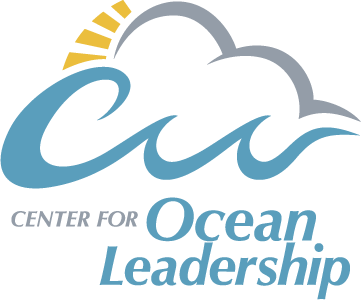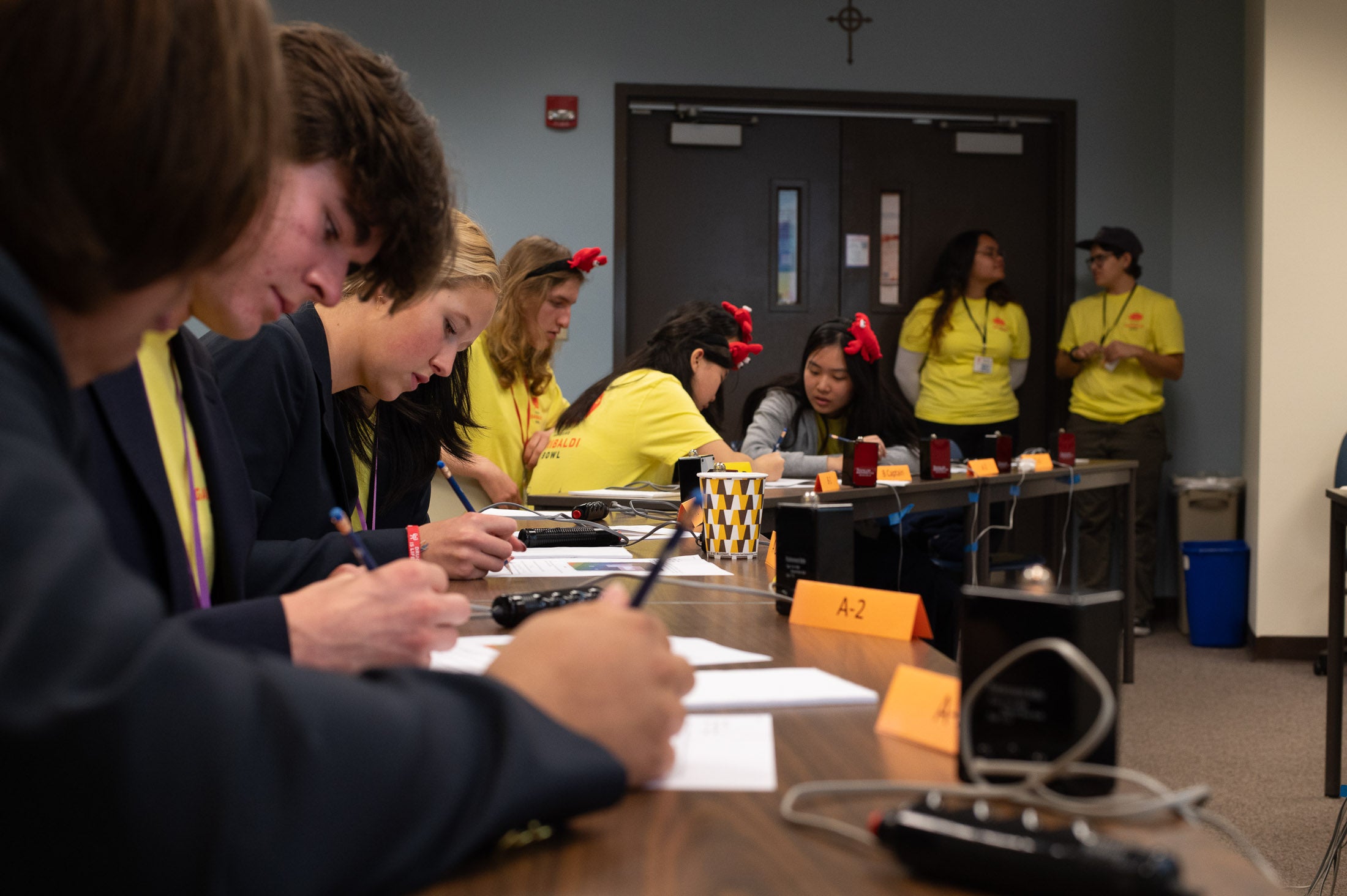The Center for Ocean Leadership (COL) is thrilled to announce the winners of the highly anticipated 2025 virtual National Ocean Sciences Bowl (NOSB) Finals Competition, which took place this past weekend in an exciting display of ocean science knowledge, teamwork, and passion for our blue planet. An interdisciplinary ocean science education program of COL, the NOSB has tested students’ knowledge of ocean-related topics through buzzer-style multiple choice and longer, critical thinking-based questions for 27 years.
To qualify for the Finals, teams first had to win their regional competitions this past February and March. In total, more than 165 teams (made up of approximately 850 students representing 26 states) participated, adding to the more than 40,000 students who have passed through the ocean sciences competition over the last 27 years.
During the 2025 Finals Competition, the top 18 teams of high school students demonstrated their remarkable expertise in everything from ocean currents, marine mammal biology, coastal processes, and the 2025 theme of “Sounding the Depths: Understanding Ocean Acoustics.” The head-to-head competition, held virtually via Zoom, using an online buzzer system, was fierce. But in the end, only one team could claim victory.
The 2025 National Champions are: Thomas Jefferson High School for Science and Technology from Alexandria, VA
The team from Thomas Jefferson High School for Science and Technology showcased their impressive knowledge in both the buzzer rounds and the problem-solving based Team Challenge Questions. Their victory is a testament to their curiosity, hard work, and hours of self-directed study. Students on the championship team includes Marta Anvelt, Krish Bommakanti, Jack Gao, Ethan Li, and David Yan (team photo below). They are coached by Shawn Stickler.
“We are incredibly proud to have had our hard work pay off and can’t wait to come back even stronger next year! We’d like to thank members of the TJHSST Ocean Bowl Club and our coach, Dr. Stickler, for their continued support – we could not have gotten as far as we did without them.” – Thomas Jefferson High School for Science and Technology Team
The top eight teams at the Finals Competition also included:
- 2nd Place – Midwood High School, Brooklyn, NY
- 3rd Place – Lynbrook High School, San Jose, CA
- 4th Place – Marshfield High School, Marshfield, WI
- 5th Place – Falmouth High School, Falmouth, ME
- 6th Place – Centerville High School, Centerville, OH
- 7th Place – Warwick High School, Newport News, VA
- 8th Place – Juneau-Douglas High School, Juneau, AK
The NOSB places an important emphasis on sportsmanship and awarded Tacoma School of the Arts from Tacoma, WA the James D. Watkins Sportsmanship Award and a trip to the U.S. National Science Foundation National Center for Atmospheric Research which is managed by UCAR thanks to the Friends of the National Center. The award is named after Admiral James D. Watkins, who founded the NOSB in 1998 and was a champion for ocean science and education in the U.S.
“These students, as well as all our championship teams, have shown an extraordinary level of passion and knowledge about our ocean, and it’s exciting to see what happens when students combine a love of learning about our environment, competing, and working together towards a common goal,” said COL Director, Dr. Sonya Legg. “They are truly our next generation of ocean leaders in the making!”
“Thanks to everyone who made this weekend a success – from long-time sponsors to our dedicated regional coordinators and volunteers without whom the competitions simply wouldn’t happen,” added Melissa Brodeur, NOSB Program Manager. “And an extra huge thanks to our regional coordinator, Lori Tsuruda with People Making A Difference, for assisting with hosting the virtual Finals Competition and preparing students, coaches, and volunteers. The NOSB community, which continues to grow out of a shared goal of training our future generation of ocean science experts, shined this past weekend.”
The 2025 national NOSB program is made possible through the following major sponsors:
- Schmidt Ocean Institute
- National Aeronautics and Space Administration
- The Curtis and Edith Munson Foundation
- The Bureau of Ocean Energy Management
- IEEE Oceanic Engineering Society
- Friends of the National Center
- National Marine Educators Association
A complete list of sponsors can be found online.
In case you missed it, watch the recorded livestream of the NOSB Finals Championship Match: Thomas Jefferson High School for Science and Technology vs. Midwood High School.
Join us in commemorating the 2025 National Finals Competition, the first since 2022, with an official t-shirt! Proceeds support scholarships for graduating NOSB students through the National Ocean Scholar Program.
About National Ocean Sciences Bowl
The National Ocean Sciences Bowl (NOSB) is a program of the Center for Ocean Leadership. Now in its 27th year, the NOSB seeks to interest students in pursuing a college degree and a future career in the ocean sciences. Through this educational forum, the NOSB strives to encourage and support the next generation of marine scientists, policy makers, teachers, explorers, researchers, technicians, environmental stewards, and informed citizens to consider and appreciate the ocean. Most high school students do not have the opportunity to study ocean science as part of their formal coursework, which makes the NOSB one of the only ways students gain exposure to this field. Many past NOSB participants have moved on to pursue college degrees and careers in ocean science and related fields, helping to solve the growing environmental, economic and security issues facing our ocean and planet.
About Center for Ocean Leadership
The Center for Ocean Leadership (COL), a University Corporation for Atmospheric Research (UCAR) Community Program, coordinates and facilitates collaborative ocean science, research, education, and communication efforts between and among government agencies and ocean research and education institutions. COL programs currently focus on ocean education, observing, and stewardship.
